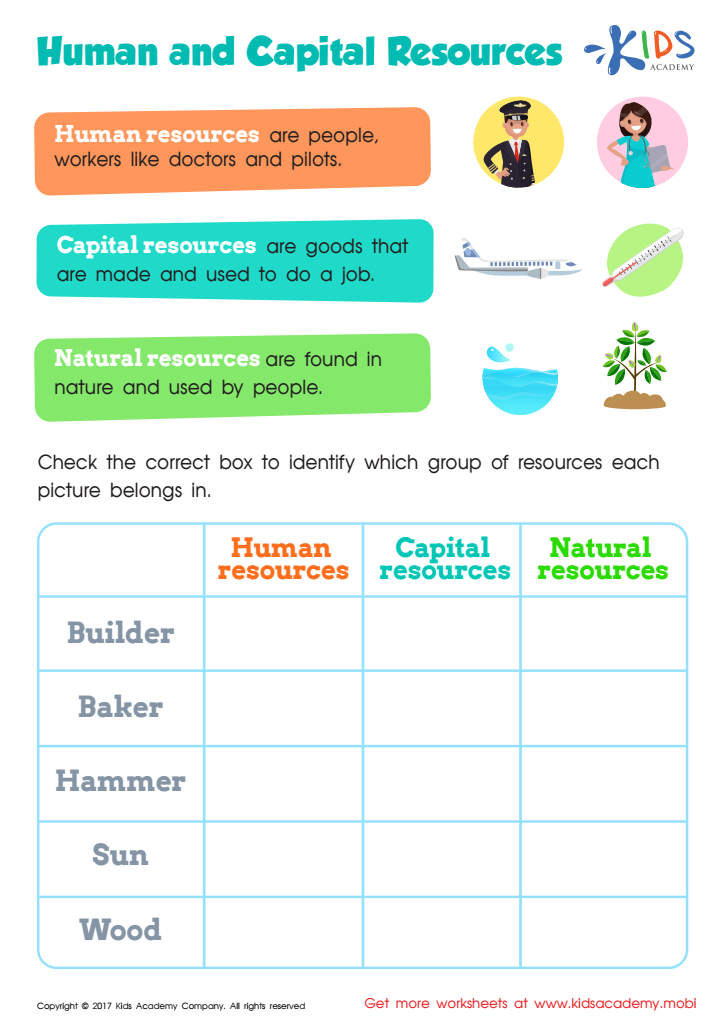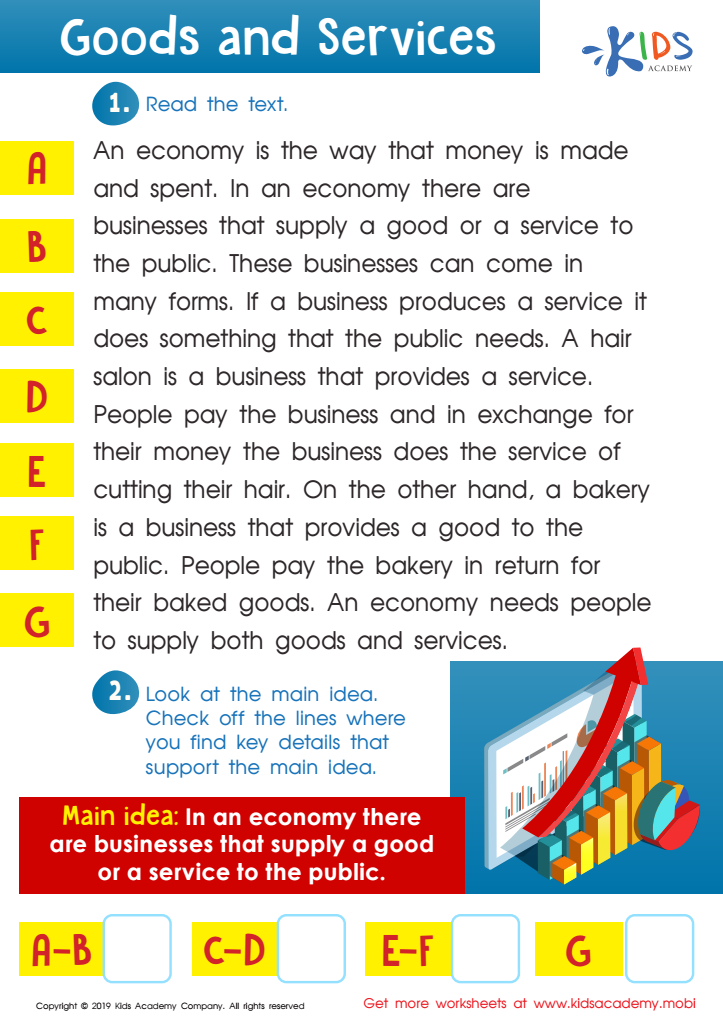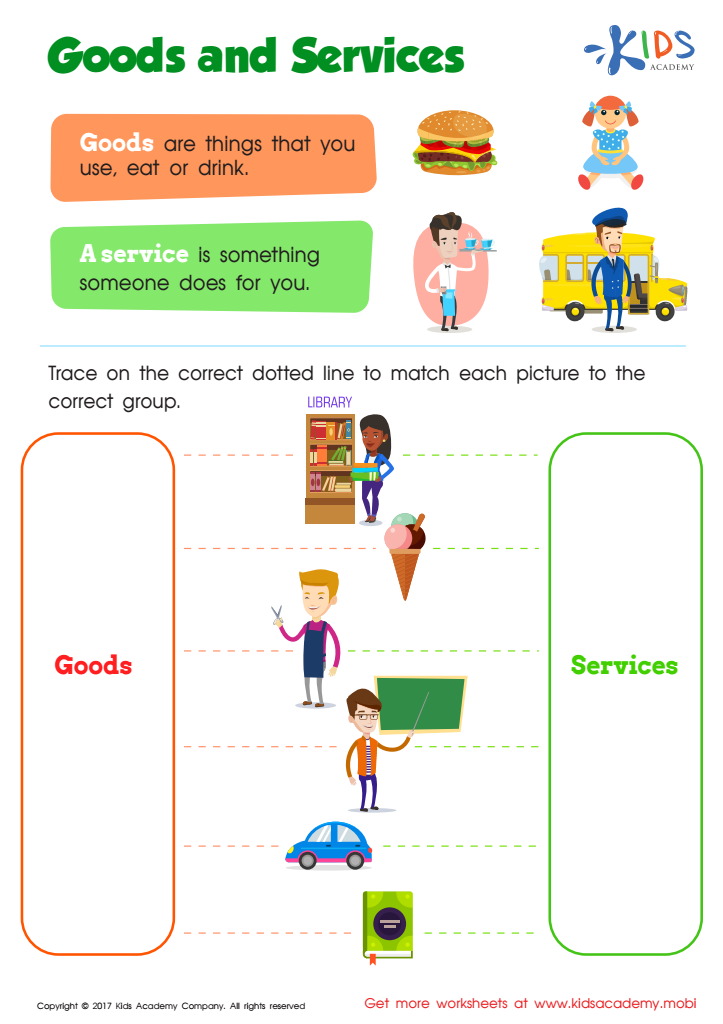Understanding economics Worksheets for Ages 5-8
3 filtered results
-
From - To
Explore our engaging “Understanding Economics Worksheets” tailored for children aged 5-8. These interactive resources introduce young learners to fundamental economic concepts through fun activities. Worksheets feature colorful illustrations and relatable scenarios, making it easy for kids to grasp valuable lessons about money, trade, and decision-making. Designed to foster critical thinking and problem-solving skills, our worksheets encourage children to explore everyday economic situations. Perfect for classroom or home use, these materials help build a foundational understanding of economics in a way that's enjoyable and age-appropriate. Empower your little learners with the tools they need to navigate their economic world confidently!


Human and Capital Resources Worksheet


Goods and Services Worksheet
Understanding economics at a young age lays a foundation for important life skills in children aged 5-8. Early exposure to economic concepts can help children grasp ideas of money, resources, and decision-making, which are essential for their future. When parents and teachers introduce basic economics, such as saving, spending, and sharing, they equip children with the ability to make informed choices.
Learning economics fosters critical thinking and problem-solving skills. Children can practice evaluating needs versus wants, understanding trade-offs, and recognizing the value of work and money. These lessons can be taught through playful and relatable activities, like managing a pretend store or organizing a family bake sale, allowing learning to take place in a fun environment.
Moreover, early economic education promotes responsibilities like budgeting, understanding the importance of savings, and making thoughtful purchases. As young children form their first views on money, this knowledge equips them with healthier financial habits for their lives ahead. Additionally, it underscores the impact of scarcity and values like sharing and empathy, paving the way for socially responsible and engaged citizens. Overall, integrating economics into early learning nurtures informed, confident, and thoughtful individuals who can navigate their economic realities effectively.


 Assign to My Students
Assign to My Students














